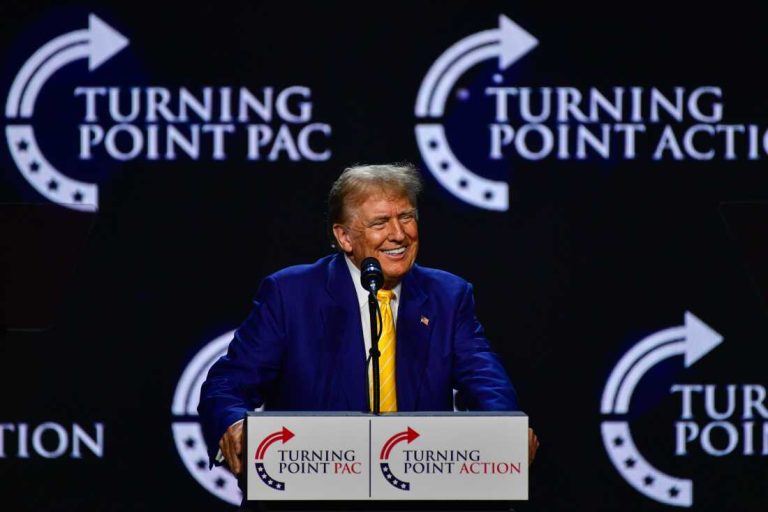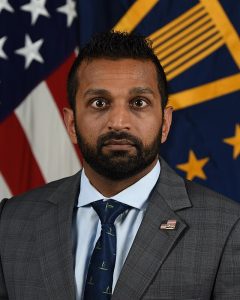The White House announced Tuesday that individuals living in homeless encampments across Washington, D.C., will soon face a stark choice: accept treatment and housing in a shelter or face arrest. The announcement marks the latest phase of President Donald Trump’s federal public safety initiative, which has already reshaped law enforcement operations in the nation’s capital.
White House Press Secretary Karoline Leavitt outlined the policy in a press briefing, confirming that the crackdown is already well underway. According to Leavitt, U.S. Park Police have cleared 70 encampments on federal park property, leaving only two remaining. Those final sites are scheduled for removal this week.
“There are only two homeless encampments remaining in D.C. federal parks under the National Park Service’s jurisdiction, and the removal of those two remaining camps is scheduled for this week,” Leavitt said. She added that the Metropolitan Police Department is now working alongside the Park Police to complete the operation.
When pressed about what would happen to individuals who refuse to leave, Leavitt was blunt: “Homeless shelters, for addiction and mental health services, or jail if they refuse, are the options on the table right now.”
President Trump has previously suggested the possibility of relocating some encampments outside the city, though Leavitt clarified that such measures are “under consideration” but not part of the current plan.
A recent review by Fox News Digital found that several long-standing encampments have already been cleared, leaving behind scattered belongings such as clothing, bedding, and food containers. However, other areas of the city, including sections of downtown, still have visible homeless populations.
In one downtown park, roughly a dozen individuals remained, surrounded by personal items and tents. Observers noted a dried red substance splattered on the sidewalk near the site, though its cause was unclear.
The encampment clearance effort comes amid heightened focus on crime in the District. Over the weekend, Trump pledged to “essentially, stop violent crime” in the city, which he described as “one of the most dangerous cities anywhere in the world.” He pointed to recent incidents involving violent crimes against federal staffers, including the attempted carjacking of former Department of Government Efficiency employee Edward Coristine.
“We have a capital that’s very unsafe,” Trump said. “You know, we just almost lost a young man, beautiful, handsome guy that got the hell knocked out of him.”
Trump’s broader public safety initiative includes federalizing the Metropolitan Police Department under Section 740 of the District of Columbia Home Rule Act, deploying approximately 800 National Guard troops, and intensifying cooperation between federal law enforcement and local police.
Officials say dismantling encampments is a key part of the strategy, citing concerns over public health, safety, and crime associated with long-term encampments in public spaces. The operation aims to connect homeless individuals with addiction and mental health services while simultaneously addressing outstanding warrants.
Critics of the plan argue that forced removals without long-term housing solutions could worsen the city’s homelessness crisis. Advocacy groups warn that shelter placements often fail to address underlying issues such as trauma, chronic illness, and lack of affordable housing.
Supporters counter that the city cannot tolerate sprawling encampments in public spaces, especially when shelter beds and treatment programs are available. They argue that the policy restores public safety and order while still offering assistance to those willing to accept it.
The White House has not set a specific timeline for completing the relocation or arrest process for those remaining in encampments. However, federal officials say the removal of the last two camps on federal park property will be completed within the week.
With the president promising daily updates on the progress, the fate of the remaining encampments — and the individuals living in them — will remain in the national spotlight as the operation moves forward.
https://twitter.com/TPostMillennial/status/1955323374910972047

James Jenkins is a celebrated Pulitzer Prize-winning author whose work has reshaped the way readers think about social justice and human rights in America. Raised in Atlanta, Georgia, James grew up in a community that instilled in him both resilience and a strong sense of responsibility toward others. After studying political science and creative writing at Howard University, he worked as a journalist covering civil rights issues before dedicating himself fully to fiction. His novels are known for their sharp, empathetic portraits of marginalized communities and for weaving personal stories with broader political realities. Jenkins’s breakout novel, Shadows of Freedom, won national acclaim for its unflinching look at systemic inequality, while his more recent works explore themes of identity, resilience, and the fight for dignity in the face of oppression. Beyond his novels, James is an active public speaker, lecturing at universities and participating in nonprofit initiatives that support literacy and community empowerment. He believes that storytelling is a way to preserve history and inspire change. When not writing, James enjoys jazz music, mentoring young writers, and traveling with his family to explore cultures and stories around the world.









